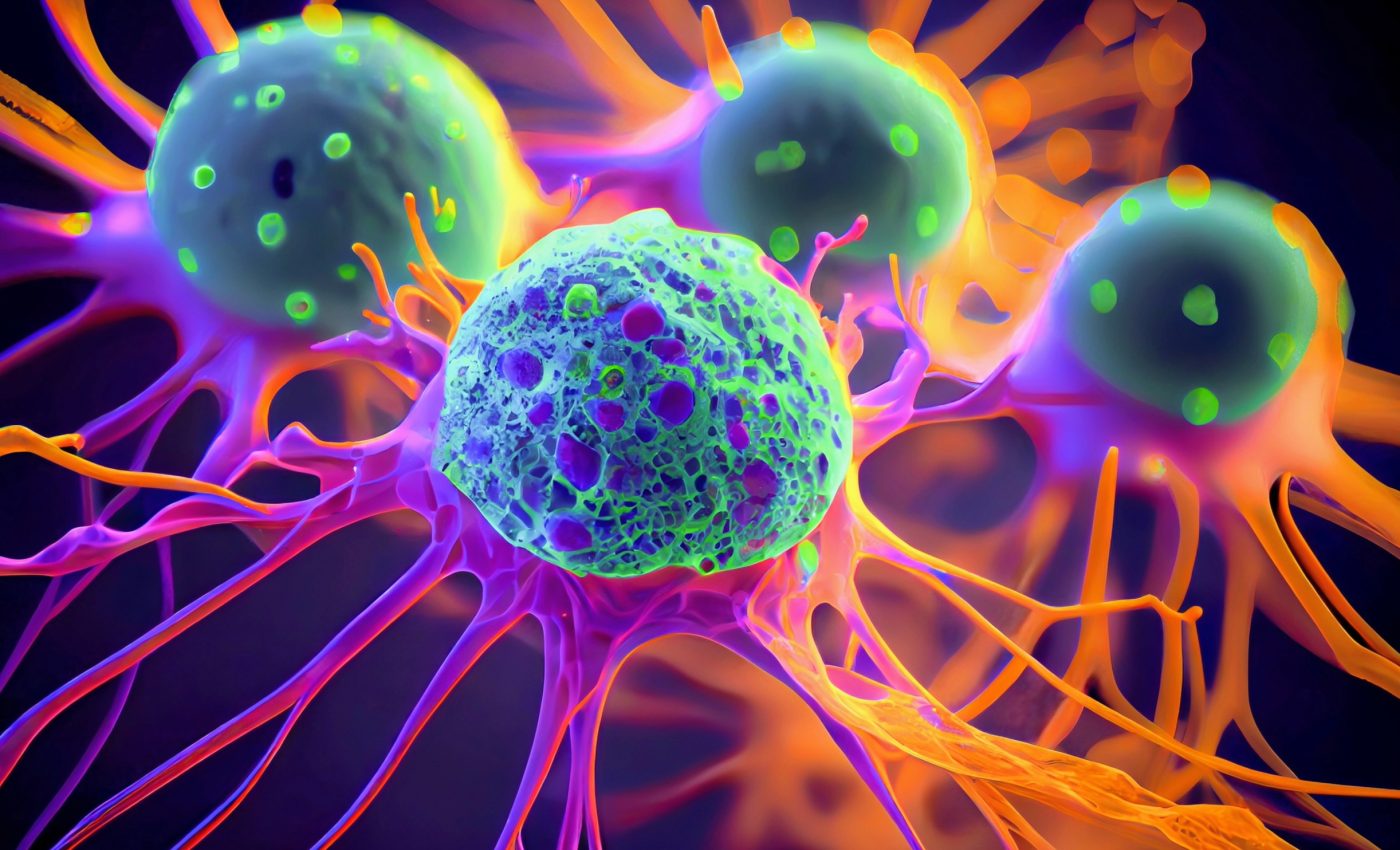
Chronic stress disrupts gut bacteria and fuels cancer progression
For a moment, let’s imagine a hectic, pressure-filled day in your life. You’re wrestling with a looming deadline, a difficult boss, or perhaps an argument with a friend. Now, imagine experiencing that level of stress constantly, for an extended period. Not a pleasant thought, right?
Well, it turns out that such chronic stress may have more adverse effects on your health than you might think.
In a game-changing study, a group of researchers have discovered how sustained stress has the potential to upset the balance of gut microbiota, accelerating the progression of a common and dangerous type of cancer – colorectal cancer (CRC).
Stress, gut bacteria, and cancer
To begin with, we’re not alone in our bodies. Our guts are bustling metropolises of bacteria. These microscopic citizens, collectively known as gut microbiota, help steer our immune response, and their imbalance can make us vulnerable to diseases.
Building on this understanding, the recent study unmasked a rather sinister nexus. It revealed how chronic stress can upset the gut microbiota balance and speed up CRC progression.
Chronic stress and tumor growth
At the center of the stage is Dr. Qing Li, the study’s lead researcher from Sichuan University of China. With her team, she adopted a hands-on approach to explore the stress-microbiota-CRC relationship. The team started by using antibiotics to dispose of gut microbiota in test subjects.
“In our study, we used an antibiotic cocktail (vancomycin, ampicillin, neomycin, and metronidazole) to eradicate gut microbiota, followed by faecal microbiota transplantation to investigate whether gut microbiota was necessary for chronic stress to accelerate CRC progression,” explained Dr. Li.
The results were startling. The researchers found that chronic stress not only fueled tumor growth but also slashed the number of beneficial gut bacteria, especially the Lactobacillus genus.
Reduction in beneficial gut bacteria
“Stress-related CRC progression can be attributed to a reduction in beneficial gut bacteria, as this weakens the body’s immune response against cancer,” noted Dr. Li.
“Lactobacillus, being sensitive to vancomycin and ampicillin, was depleted in both the control and stress groups by the antibiotic cocktail. This depletion highlights its crucial role in maintaining gut health and its potential association with CRC progression under chronic stress.”
These friendly bacteria play a crucial role in keeping our guts healthy. They are also instrumental in defending our bodies against cancer. However, they are sensitive to antibiotics and can be depleted by stress.
Fighting cancer with gut bacteria
Interestingly, the role of beneficial bacteria doesn’t stop there. The researchers found that when they supplemented these bacteria during chronic stress, they observed reduced tumor formation.
“Through faecal analysis, we found that Lactobacillus plantarum (L. plantarum) specifically regulated bile acid metabolism and enhanced the function of CD8+ T cells. This indicates how Lactobacillus may enhance anti-tumour immunity,” said Dr. Li.
However, there’s a twist in the tale. Contrary to their initial hypothesis, the experts found that L. plantarum might not boost the anti-tumor immune function of CD8+ T cells by producing metabolites.
The research offers hope for future treatments, particularly among patients under chronic stress. “Combining traditional anti-tumour drugs with L. plantarum supplementation could be a viable therapeutic strategy for patients with stress-related CRC,” said Dr. Li.
It is indeed a significant finding, considering CRC is the second most prevalent cancer and the leading cause of cancer-related death in Europe.
Beyond stress and cancer
Eager to build upon their findings, the research team plans to examine fecal and tumour samples from CRC patients. They aim to understand the variations in gut microbiota among individuals exposed to stress and those who aren’t.
They intend to verify if L. plantarum is indeed reduced in patients under stress and explore its relationship with anti-tumor immune cells.
Importance of personalized medicine
The emerging evidence from this study highlights the importance of personalized medicine in the treatment of CRC.
Understanding the unique microbiota profile of each patient could pave the way for tailored interventions that specifically target their distinct microbiota alterations. This precision approach could involve customizing probiotic or dietary interventions to enhance gut health and bolster immune responses.
With advances in metagenomics and microbiota analysis, healthcare providers may soon have tools at their disposal to offer bespoke treatments that integrate microbiota modulation as part of a comprehensive cancer care strategy.
Bacteria and anti-tumor immune cells
Dr. Li and her team foresee a future where interventions are not only cancer-specific but also aligned with the individual’s microbiome composition, maximizing therapeutic efficacy.
“Our aim is to verify if L. plantarum is significantly reduced in stressed CRC patients and to explore its relationship with anti-tumor immune cells,” noted Dr. Li.
Could a proactive approach to gut health be the next big thing in cancer care and prevention?
The study was presented at UEG Week 2024.
—–
Like what you read? Subscribe to our newsletter for engaging articles, exclusive content, and the latest updates.
Check us out on EarthSnap, a free app brought to you by Eric Ralls and Earth.com.
—–













